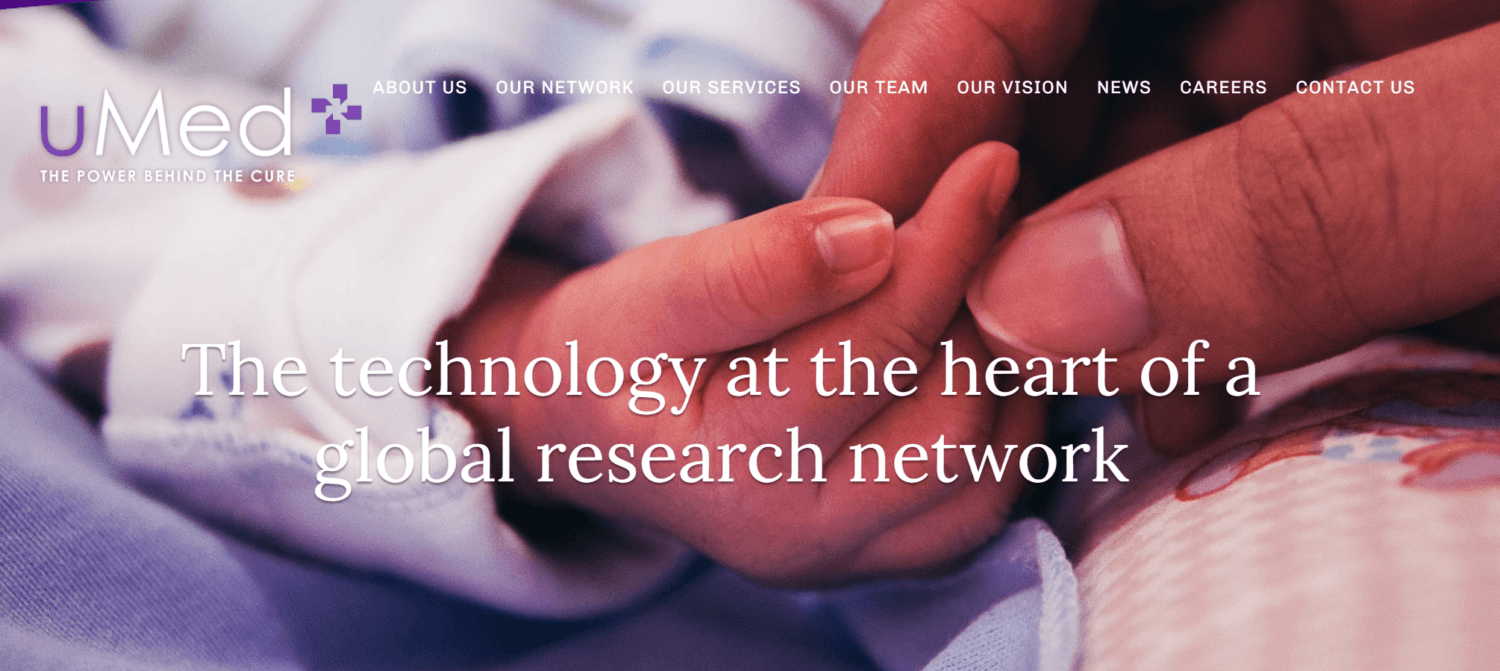
What You Should Know:
– London-based uMed has raised nearly $4.8m in venture capital funding to help healthcare providers in the UK and US participate in more clinical studies.
– The funding will enable uMed to grow its innovative platform which automates processes in running clinical research registries while ensuring regulatory compliance. Its platform can link some of the richest sources of healthcare data and drive a step-change in how clinical and real-world research is conducted.
– To date, uMed is embedded across a rapidly expanding global network that includes 1.7 million patients in more than 160 primary care sites in the UK, along with 2m patients from a large US health system available from early next year.
uMed, a London-based research technology company, announced it has raised US$4.8m (£3.7m) in funding for its innovative platform which automates processes in running clinical research registries while ensuring regulatory compliance. The funding is backed by AlbionVC, Delin Ventures and Playfair Capital are backing uMed’s latest round of funding, along with Silicon Valley’s 11.2 Capital to reinforce the company’s US presence.
uMed’s founder and CEO, Dr. Matt Wilson, a former NHS anaesthesiologist and Medical Officer in the Royal Marines, created the technology platform to connect life science researchers with healthcare providers and their patients. uMed’s platform automates the clinical study process, creating regulatory and quality patient registries that combine electronic health data with structured data captured from each patient which can include genomic and biomarker samples. This automation allows all healthcare providers from healthcare specialists to large hospitals to participate in multiple research programs simultaneously; supporting enhanced research revenue without increasing overhead or burdens on clinical teams.
Optimizing Medical Research While Safeguarding Data
Medical research studies can cost many millions of dollars each, and up to 80% of these costs are associated with manual processes delegated to healthcare providers which uMed could eradicate while safeguarding data. This means life science organizations are able to rapidly build high-quality datasets that go beyond real-world data vendors, allowing researchers to augment health records with additional structured data captured from patients at home. This is achieved without exposing patient identity and ensuring key steps such as patient consent.
How It Works
The uMed process works in three stages:
1. The platform integrates with the healthcare provider’s EHR or data lake to match eligible patients to studies that are sourced by uMed or internal research teams.
2. The approval of the programs via the uMed dashboard triggers the automated outreach and remote consent of those patients on behalf of their recognized provider.
3. uMed remotely captures data from both the patient, the EHR and where necessary the clinician, linking this data back to the study dataset in a seamless process that maintains robust guarding of patient data, provider oversight and a safe patient experience.
Recent Traction/Milestones
uMed is already delivering its technology to a number of clinical research studies including the University of Oxford-led RAPTOR-C19 study, part of the national priority CONDOR platform evaluating the use of COVID-19 diagnostics in different settings. RAPTOR-C19 is comparing the accuracy of different rapid tests for Covid-19 among patients in community settings, such as GP surgeries. These findings are informing the scaling up of testing in the UK, which is a key priority in helping scientists better understand and control Covid-19 transmission.
The uMed platform provides the functionality required to digitally target and engage patients for this study, enabling e-consent and the automated capture of structured outcomes remotely which are linked back to the data from each patient record. This ensures the efficient execution of the study across a large number of sites, and creates the capacity for healthcare providers to participate in many more of these studies than would otherwise be possible. The recent announcement by Pfizer/ BioNTech of their record-breaking sprint to reach positive results for a Covid-19 vaccine underlines how important it is in a health crisis to accelerate innovation timelines and scale.
To date, uMed’s platform is already embedded across a rapidly expanding global network that includes 1.7 million patients in more than 160 primary care sites in the UK, along with two million patients from a large US health system available from early next year. The recent announcement by Pfizer/ BioNTech of their record-breaking sprint to reach positive results for a Covid-19 vaccine underlines how important it is in a health crisis to accelerate innovation timelines and scale.
